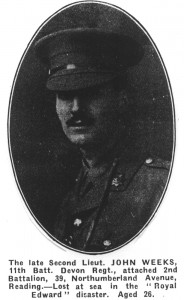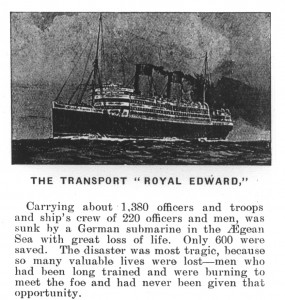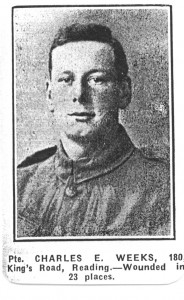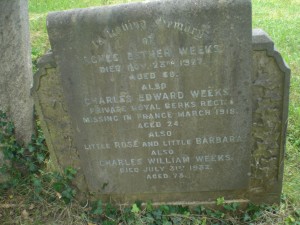William Edward Davis Wellbelove
Driver 616069
20th Bde. Ammunition Column
1st/1st Berkshire Royal Horse Artillery
Division 40
William Edward Davis Wellbelove, is commemorated on a family memorial. Grave number 8790. He was related to Joseph Davis AIF, who is commemorated on the same headstone. The grave number is 8790. The Berkshire Family History classification if 40C11.
William was the eldest son of William Edward and Dora Wellbelove, of 30, Crescent Road, Reading. He was an old boy of the Reading Blue Coat School.
William died in Number 17 General Hospital Alexandria, after contracting malaria and developing pneumonia. He died on the 29th October 1918, aged 23. He is buried in the Alexandria (Hadra) War Memorial Cemetery, Egypt. Location E.99.
Alexandria was a great Anglo-French base camp and hospital centre. Casualties were brought to Alexandria from the islands and men came to the camps in Alexandria when on leave from campaigns in the desert.



